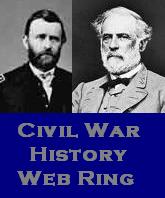
August Valentine Kautz was born on January 5, 1828, in Ispringen, Baden, Germany. His parents immigrated to the United States the same year, and settled in Brown County, Ohio in 1832.
He enlisted as a private in the First Regiment of Ohio Volunteers at the outbreak of the Mexican War, and served in this regiment throughout the war. He received an appointment to the United States Military Academy upon his return, and graduated in 1852. He was assigned to the 4th Infantry Regiment as a second lieutenant upon graduation.
He served with the 4th Infantry in the Washington and Oregon territories during the 1850s, where he was twice wounded during engagements with Indians during the Snake River and Rogue River campaigns. He was promoted to first lieutenant in the 4th Infantry in 1855. In July of 1857, he attempted an ascent of Mount Rainier with a party of four soldiers, an Indian guide and the post doctor of Fort Bellingham. They were forced to turn back before reaching the summit. He was commended during this same year for gallantry by General Scott. Kautz traveled in Europe during 1859 and 1860, returning prior to the outbreak of the Civil War.
Kautz was appointed a captain in the 6th US Cavalry when that unit formed in 1861. He served with the unit from its formation through the Peninsula Campaign, commanding it during the Seven Days Battles.
On September 2, 1862, Kautz was appointed colonel of the 2nd Ohio Cavalry Regiment, and transferred to the western theater of operations just before the battle of South Mountain. His regiment took part in the capture of Monticello, Kentucky on May 1, 1863, and he was brevetted major in the regular army for actions near that location on the 9th of June. The 2nd Ohio was also engaged in the pursuit and capture of Confederate General John Hunt Morgan in July 1863, preventing him from escaping across the Ohio River. He served under the command of Major General Ambrose Burnside during the Knoxville campaign of September to December 1863.
He returned to the eastern theater in 1864, where he initially served as the assistant chief of the Cavalry Bureau to Brigadier General James H. Wilson. He very briefly served as chief of the bureau when Wilson departed to the Army of the Potomac in April, before receiving new orders himself. He commanded the cavalry division of the Army of the James between April and June 1864, and was appointed brigadier general of volunteers on May 7. Kautz entered Petersburg briefly with his command on June 9, 1864, for which he was brevetted lieutenant colonel.
His command led the advance during the Wilson raid in late June 1864 to destroy track on the two railroads leading into Petersburg from the south. Although the raid caused a great deal of damage, its perpetrators suffered greatly as well. Eventually cut off and surrounded, Kautz and Wilson lost nearly a third of their force as casualties and prisoners before returning to Union lines.
He was brevetted brigadier general in the regular army on March 13, 1865 and assumed command of a division of colored troops, First Division, XXV Corps. He marched them into Richmond April 3rd. His command was active in the pursuit of Lee’s army until the surrender at Appomattox Court House. He was also brevetted brigadier and major general of the Regular Army or gallant and meritorious service in the field during the war.
He was brevetted brigadier general in the regular army on March 13, 1865 and assumed command of a division of colored troops, First Division, XXV Corps. He marched them into Richmond April 3rd. His command was active in the pursuit of Lee’s army until the surrender at Appomattox Court House. He was also brevetted brigadier and major general of the Regular Army or gallant and meritorious service in the field during the war.
When President Lincoln was assassinated, President Andrew Johnson ordered the formation of a military commission to try the accused conspirators. Kautz served as one of the nine officers assigned to the commission until they reached their verdict on June 29, 1865. In July 1865 he briefly served as the military governor of New Orleans to quell rioting there before returning to the western states.
Kautz served the remainder of the career in the southwestern United States. He was appointed lieutenant colonel of the 14th Infantry in 1867, and transferred to the 15th Infantry in 1869. He commanded this regiment on the New Mexico frontier until 1874, establishing the Mescalero Apaches on their reservation from 1870 to1871. In June 1874 he was promoted to colonel of the 8th Infantry, and was placed in command of the Department of Arizona in 1875. He served in California from 1878 to 1886, and in Nebraska from 1887 until his retirement.
Kautz retired from the army in 1892 and moved to Seattle, Washington. He lived there until his death on September 4, 1895, and is buried in Arlington National Cemetery.
He published several books on army duties and customs during and immediately after the Civil War. These included The Company Clerk (1863), Customs of Service for Non-commissioned Officers and Soldiers (1864), and Customs of Service for Officers (1866).


No comments:
Post a Comment